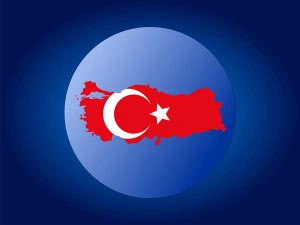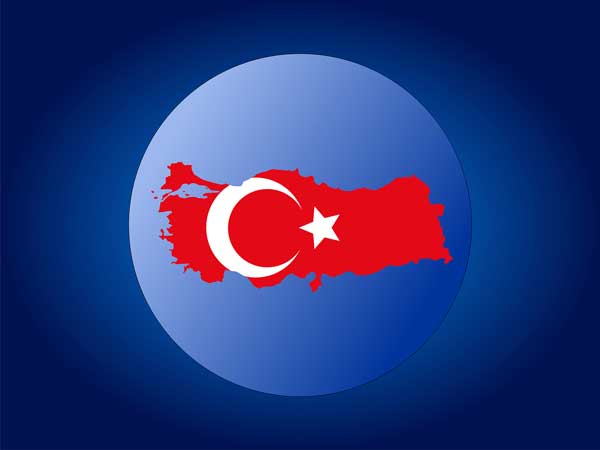10/31/2011 – by Richard Weitz
October 24,
UN Day, was not marked with joyous celebrations in Turkey. The Turks we met on our trip earlier this month universally share the general critique common in many of the emerging powers — that the United Nations is unrepresentative and, in reflecting the power balances of 1945, do not give adequate weight to Turkey, Brazil, India, South Africa, and the other rising powers. These themes were present in a speech Turkey’s Prime Minister, Recep Tayyip Erdogan, made during our stay, but were also made by many of the foreign policy experts we encountered during our week-long trip.

Turkey served a two-year rotational term on the UN Security Council (UNSC) from 2009-2010, but, lacking the power to veto resolutions like the five permanent members (P-5), found itself unable to block the imposition of sanctions on Iran. More recently, Erdogan has attacked the P-5 for blocking efforts to force Israel to relinquish its nuclear weapons or impose sanctions on the Syrian government for its egregious behavior.
Many Turks believe that the P5 should lose their right to permanent membership on the Council and should not have the exclusive right to veto resolutions. In the words of the Turkish government:
Turkey believes that a comprehensive reform of the UN system cannot be complete without a reform of the Security Council. In order to ensure that the Council`s membership better reflects contemporary international realities; a more democratic representation of Member States must ensue within the Council. In this regard, Turkey does not find absolutely necessary to increase the number of permanent members. For, the concept of permanent membership falls contrary to the principle of sovereign equality, the very foundation upon which the United Nations is built.
But membership expansion invariably raises related questions. The main issues of debate are how many additional countries should receive representation on the Council; which ones should they be; what categories of membership should exist (and specifically whether any states should receive permanent membership with veto power); what should the precise scope of the veto power; and what should be the relationship between the Security Council and the other UN organs, especially the General Assembly.
The most popular and the oldest reform theme is to further increase the number of Security Council members, especially from developing regions that are geographically underrepresented among the current members. These calls have become newly prominent in recent years, including during the UN’s own reform debates.
But no consensus has ever been reached as to the size of expansion. Members also differed in their emphasis regarding whether UNSC seats should be distributed based on states’ contribution to the maintenance of international peace and security, the principle of equitable geographic distribution, the population size of the proposed members, the size of their economies, their troop and financial contributions to UN peacekeeping operations, or whether the appropriate metric should be their future rather than current potential.
Moreover, any specific proposed new addition to the Council, especially to roster of permanent members, galvanizes resistance among their regional rivals. For example, Chinese officials have privately told their U.S. counterparts of their reluctance to expand the Council further, which means opposing the aspirations of Japan and India. This kind of rivalry exists even among EU members, with Italy earlier seeking to deny Germany’s becoming another permanent UNSC member from the EU.
Adding new members might address some representational and other problems with the Security Council, but it would not be a cost-free reform. The addition of new members would increase the number of negotiating parties, which may be democratic but is detrimental to rapid decision-making, a useful attribute when responding to international security emergencies. Conversely, if new members were given permanent status with veto powers, the risks of deadlock would increase.
One proposal to avert this last problem, and a constant reform item in its own right, is to curtail the use and extent of the veto, or even eliminate it altogether. Abrogating the right of veto has been defended on the grounds of efficiency since it could accelerate decision-making by removing a common bottleneck on rapid decisions. Eliminating the veto is also seen as promoting democracy among UN members by removing an inequitable status distinction among members.
The veto power enjoyed by the UNSC permanent members operates in several dimensions. As a “preventive veto,” it precludes any legal enforcement action against one of the permanent members. As a “protective veto,” it enables permanent member to protect themselves and their allies and friends against adverse Council action. As a “hidden” veto, it can prevent other UNSC members from even attempting to secure some action because they anticipate that one of the permanent members will veto their proposal.
The reason the veto arose was to address a fundamental problem that undermined the League of Nations, the precursor to the UN. To prevent a repeat of the 1930s, the UN’s architects structured the UNSC so that the organization would not engage in self-destructive battles with its most powerful members. In this sense, the veto functions as a “safety fuse” to prevent the UN’s self-destruction. The logic here is that the United States, Russia, and other great powers will pursue their vital interests no matter how the other UN members vote, so a mechanism is needed to prevent situations from arising that could undermine the UN by forcing a great power to defy it.
The five existing permanent UNSC members defend their veto powers as an integral component of the UN Charter and as giving them a vested interest in engaging with the Council and the UN. And, having that veto power, they are well positioned to resist any proposal that might weaken it. Articles 108 and 109 of the UN Charter requires the consent of all permanent members to amend the Charter, which would be necessary to deprive one or more of them of their permanent seats and veto rights.
To avoid having to amend the Charter, proposals have arisen to modify the use of the veto rather than abolish it or encourage the permanent members to make a collective commitment not to use to it, or even phase it out in the future. One suggestion is to forbid individual permanent members from exercising a veto when all other Council members back the decision. A related idea is to change the veto weight by requiring two or three permanent members to vote negatively to secure the rejection of a draft resolution. Another proposal for a change is to limit the total number of negative votes that a permanent member may cast within a specified time period. Yet another proposal is to limit veto rights for decisions regarding wars and humanitarian crises when “their vital interests are not involved.”
Such subjective criteria are hard to enforce. To take one example, a permanent member, by definition a great power with global interests and responsibilities, might define its interests differently from the rest of the international community.
Another approach to Security Council reform is to change the body’s methods of work. The Security Council has been criticized for its opaque deliberations and negotiating process. Most Council activities take place in “consultations,” which are closed-door meetings among UNSC members that non-member states are not permitted to attend.
Advocates of greater transparency claim its would increasing the clarity of discussions, broaden the range of views considered, and promote the values of accountability and efficiently. Supporters of keeping most consultations secret argue that they facilitate decision making and speculate that, if the consultations were made open, then the discussions of sensitive matters would simply occur in more informal and secretive venues. And thus far this has largely been what has occurred.
Another reform proposal to the Council’s working methods is to create a secretarial for the UNSC’s rotating non-permanent members to provide them with “institutional memory” and acquaint them with what previous non-permanent members have been doing, as well as with the dealings of the Security Council as a whole. Such a reform could make Security Council deliberations and decisions more informed, but could also deepen divisions between the permanent and non-permanent members.
Although Turkey’s concerns are genuine and widely shared, the Security Council, and the UN in general, seems largely incorrigible. And for this reason, new organizations have arisen to fill the gap. These include the G8, which also is seen as unrepresentative, but also the G20, which does give Turkey, China, India, and other emerging powers an important role in world politics commensurate with their status.
And some of our Turkish interlocutors explicitly described Turkey’s role as to serve as a voice on the G20 and similar organizations for its allies in Central Asia and elsewhere who remain outside of what still essentially remain, for reasons of effectiveness, as exclusive clubs with membership limited to those states that can most effectively act in any given area.


